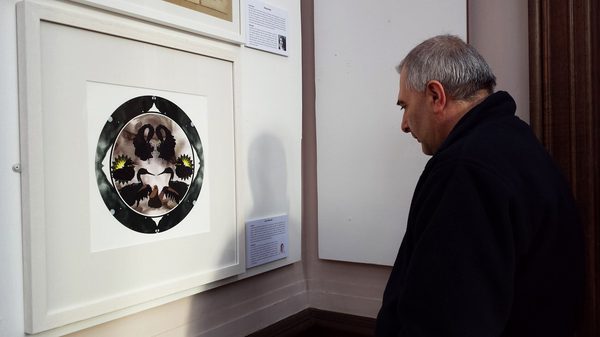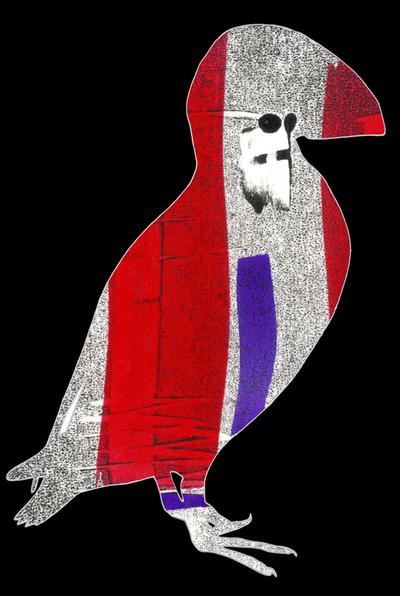Oil Spill
By
Lucy Stevens
2014
The Web Of Water is an international art project presenting different attitudes and takes on water; its use and misuse; and critical importance on Earth. The project aims to create awareness of the importance of water by exploring the myriad aspects of our life that water touches. Professional artists (English and Indian) offer their perspectives on Water and create artworks in a contemporary and narrative artform. The work is on display at the Atrium Gallery at the ICCA, Nottingham until Friday 28 March and will tour to various other venues across the midlands including Deda in Derby and MS University in Baroda India.
Oil Spill was created with a particular focus on the misuse of water, and the effects of oil spills on wildlife.
The composition explores the explosion caused by the BP Deepwater Horizon Disaster in the Gulf of Mexico in 2010, which spilt 210 million gallons of oil during prime mating and nesting season for bird and marine species. The oil coated birds feathers, making it impossible to fly, destroying their natural waterproofing and insulation, leaving them vulnerable to hypothermia or overheating and less buoyant in water. As the birds frantically preen their feathers to restore their natural protections they often swallow some of the oil, which can severely damage their internal organs and lead to death.
'Oil Spill' on display at the Atrium Gallery at the ICCA, Nottingham
‘Oil Spill’ on display at the Atrium Gallery at the ICCA, Nottingham
The effect of an oil spill can have long-term effects on entire species, polluting the air, water and altering ecosystems. Oil, pesticides and heavy metals can enter the food chain and finally transfer to creatures used as food by humans, remaining in the food chain for generations.
One year after the spill scientists have found that migrating birds are still carrying chemicals from the spill, Pelican eggs are contaminated, Coral has died, dead baby dolphins are being washed up on shorelines, still covered in oil. Shrimp and crabs are being born without eyes and fish with oozing sores effected by the oil and dispersants and chemicals used in its clean up.
BP are liable for the spill, having paid out more than $26 billion for cleanup and various damage claims, and it still faces potentially massive liability under federal environmental law. One of the lawyers for the plaintiffs, Jim Roy, said BP had put “production over protection, profits over safety”. Mr Roy also attacked the rig’s operator, Transocean, saying the company’s safety official on the rig had received little training: “His training consisted of a three-day course. Amazingly, he had never been aboard the Deepwater Horizon.
Helping Artists Keep Going
Axis is an artist-led charity supporting contemporary visual artists with resources, connection, and visibility.




